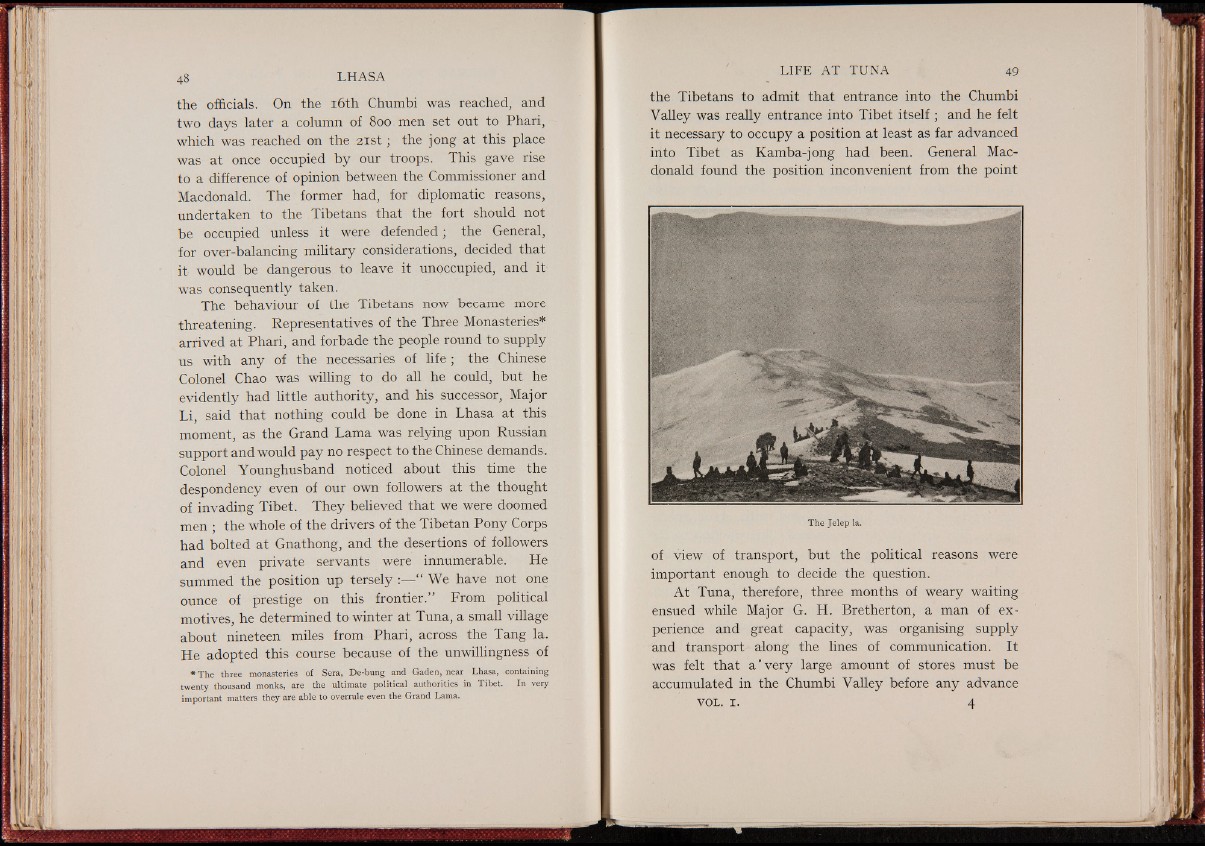
the officials. On the 16th Chumbi was reached, and
two days later a column of 800 men set out to Phari,
which was reached on the 2 1 s t; the jong at this place
was at once occupied by our troops. This gave rise
to a difference of opinion between the Commissioner and
Macdonald. The former had, for diplomatic reasons,
undertaken to the Tibetans that the fort should not
be occupied unless it were defended; the General,
for over-balancing military considerations, decided that
it would be dangerous to leave it unoccupied, and it'
was consequently taken.
The behaviour of the Tibetans now became more
threatening. Representatives of the Three Monasteries*
arrived at Phari, and forbade the people round to supply
us with any of the necessaries of life ; the Chinese
Colonel Chao was willing to do all he could, but he
evidently had little authority, and his successor, Major
Li, said that nothing could be done in Lhasa at this
moment, as the Grand Lama was relying upon Russian
support and would pay no respect to the Chinese demands.
Colonel Younghusband noticed about this time the
despondency even of our own followers at the thought
of invading Tibet. They believed that we were doomed
men ; the whole of the drivers of the Tibetan Pony Corps
had bolted at Gnathong, and the desertions of followers
and even private servants were innumerable. He
summed the position up tersely :— “ We have not one
ounce of prestige on this frontier.” From political
motives, he determined to winter at Tuna, a small village
about nineteen miles from Phari, across the Tang la.
He adopted this course because of the unwillingness of
* T h e three monasteries of Sera, De-bung and Gaden, near Lhasa, containing
twenty thousand monks, are the ultimate political authorities in Tibet. In very
important matters they are able to overrule even the Grand Lama.
the Tibetans to admit that entrance into the Chumbi
Valley was really entrance into Tibet itself ; and he felt
it necessary to occupy a position at least as far advanced
into Tibet as Kamba-jong had been. General Macdonald
found the position inconvenient from the point
The Jelep la.
of view of transport, but the political reasons were
important enough to decide the question.
At Tuna, therefore, three months of weary waiting
ensued while Major G. H. Bretherton, a man of experience
and great capacity, was organising supply
and transport along the lines of communication. It
was felt that a ’ very large amount of stores must be
accumulated in the Chumbi Valley before any advance
v o l . 1. 4